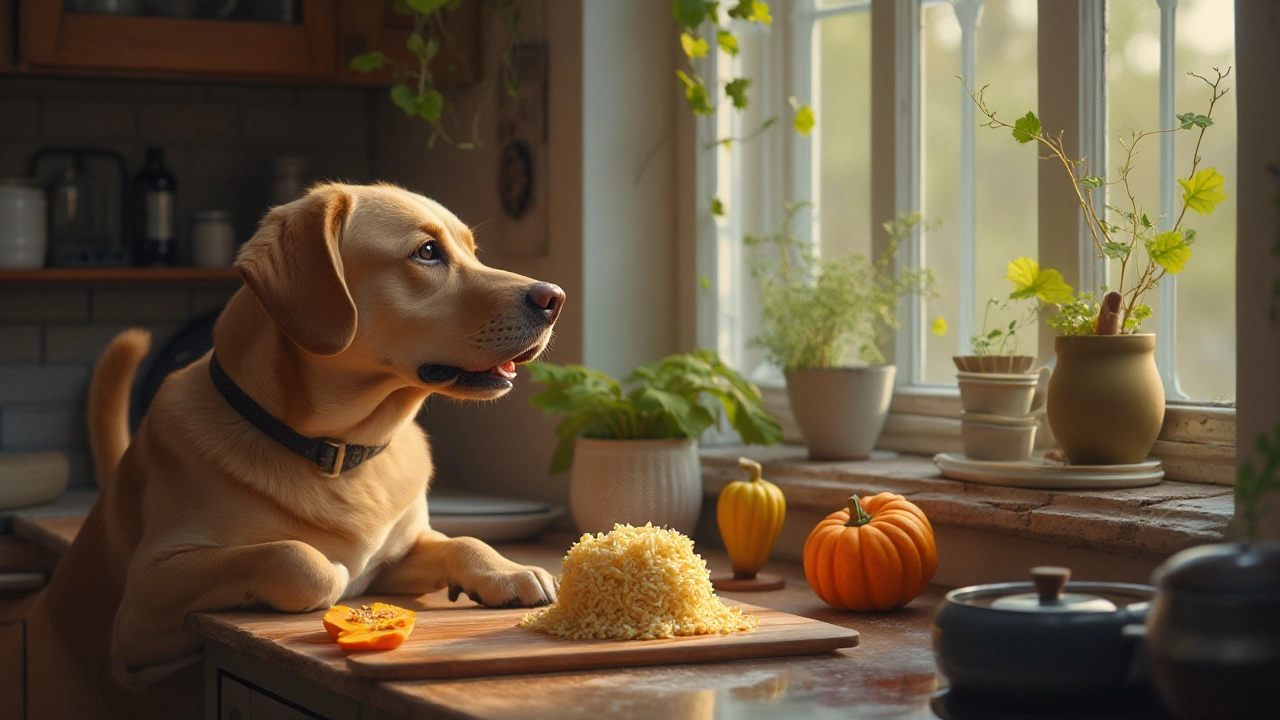Dog Diarrhea Remedy: Simple Steps to Get Your Dog Back on Track
If your furry friend is running to the bathroom more than usual, you know how stressful it can be. Diarrhea isn’t just messy – it can dehydrate your dog and hide bigger health issues. The good news? Most mild cases fix themselves with a few easy changes you can do at home.
1. Give Their Tummy a Break
First thing: skip the regular meals for 12‑24 hours. Let your dog’s stomach settle while you keep fresh water available at all times. Small sips every few minutes work better than a big bowl, which can trigger more loose stools.
After the fast, introduce a bland diet. The classic “boiled chicken and rice” combo does the trick for many pups. Use skin‑less, boneless chicken breast and plain white rice in a 1:2 ratio (one part chicken, two parts rice). Serve a small portion – about a quarter cup for a small dog, up to a half cup for a larger one – and watch how they react.
2. Add Natural Soothers
Several kitchen staples can help firm up stool without medicine. A spoonful of plain, unsweetened pumpkin puree (not pie filling) adds soluble fiber that absorbs excess water. If your dog tolerates it, mix a tablespoon into their bland meal.
Another gentle option is plain boiled carrots or sweet potato, mashed to a soft consistency. Both provide vitamins and a bit of bulk to slow down bowel movement speed.
Probiotics are worth a shot, too. Many pet stores carry dog‑specific probiotic powders you can sprinkle over food. These friendly bacteria help restore gut balance, especially after a bout of diarrhea.
Keep an eye on your pet for 48‑72 hours. If stools start to look firmer and your dog seems more energetic, you can gradually re‑introduce their regular food over a few days, mixing in more of the regular kibble each day.
When to call the vet? Look for any of these red flags: blood in the stool, vomiting, lethargy, fever, or if diarrhea lasts more than three days. Puppies, senior dogs, and dogs with existing health problems need professional eyes sooner rather than later.
While home care works for many, some situations demand medication. Your vet may prescribe an anti‑diarrheal drug or antibiotics if an infection is suspected. Never give human medicine to your dog without vet approval.
Lastly, prevention helps keep the tummy happy. Avoid sudden diet changes, keep garbage and toxic foods out of reach, and stay up to date on vaccinations and deworming. A healthy diet with quality ingredients – like the treats from Galloway Gourmet Dog Treats – can also support gut health.
Remember, a quick fast, bland diet, and a few natural add‑ins often put your dog back on track. Stay calm, monitor closely, and don’t hesitate to reach out to a vet if anything feels off. Your pup will thank you with a wagging tail and a settled stomach soon enough.

Pumpkin vs Rice: Which Is Better for Dogs with Diarrhea?
Choosing the right food for dogs with diarrhea can be crucial in aiding their recovery. This article explores the benefits of pumpkin and rice, two popular remedies, offering insights on their nutritional value and how they help with digestion. You'll find tips on preparing these foods for your furry friend and which option might suit your dog's specific needs best. With easy-to-digest advice and interesting facts, pet owners can make informed decisions when dealing with their dog's digestive troubles.
View more